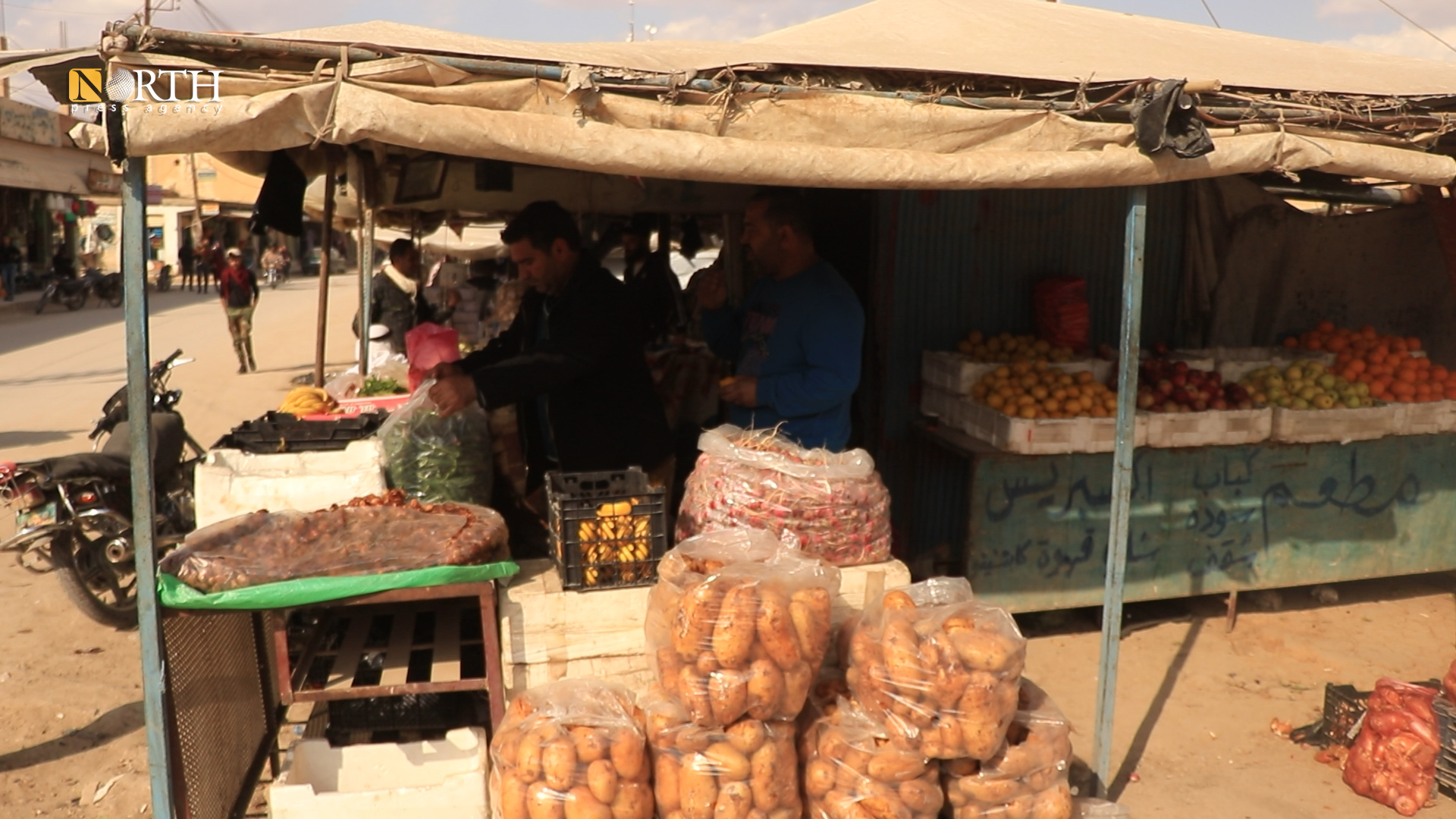TEL TAMR, Syria (North Press) – At the entrance of the main market in the town of Tel Tamr, north of Hasakah, Fahed Younes is sitting in a stall selling vegetables and fruits, looking at the passing by amid stagnation of the purchasing power.
“Before the closure of the M4 Highway, our work was good, but after those mercenaries arrived in the outskirts of the highway, it was closed and the purchasing power decreased,” Younes, a father of five, said.
“My work has decreased by 80%, which has affected my income,” Younes added.
Before the closure of the M4, Younes used to sell for about 200,000 SYP per day (about $60), but now he hardly sells for 50,000 SYP.
“I have sold nothing for three days, the vegetables I offered were still the same, no one bought anything,” he told North Press.
For months, the M4 Highway has witnessed a halt in commercial traffic due to the ongoing Turkish shelling and the presence of the Turkish-backed armed opposition factions on the outskirts of the road near the towns of Ain Issa, north of Raqqa and Tel Tamr, north of Hasakah.
In October 2019, the highway became a warzone, as Turkish-backed factions advanced into the Autonomous Administration held areas, and reached the outskirts of the M4 after occupying Sere Kaniye and Tel Abyad, where the road was closed for seven consecutive months.
On May 2020, the highway was reopened for the first time after Russian mediation to reopen parts of the road, but since then the road is closed from time to time due to Turkish bombing.
Over the years dozens of kiosks spread along the M4 Highway formed a source of livelihood for many people to support their families amid lack of job opportunities.
Along the highway inside the town of Tel Tamr, many owners of fixed and mobile stalls and kiosks sit, scattering various types of goods such as clothes, shoes, fish, fast food and other necessary necessities despite the stagnation in purchasing power.
While others removed their stalls on the Highway amid difficult economic conditions due to the absence of commercial traffic through which they could secure their livelihood.
In a small fast food restaurant on the side of the M4 Highway in the town of Tel Tamr, Mehdi Dawi does his best to serve his customers from the town’s residents.
Dawi is doing his best with his two brothers who work together, to take advantage of the opportunity that may not be repeated daily, especially since this restaurant is their only source of livelihood to support their families for years.
Unlike many of the stall owners who converted to other professions, Dawi is trying to stick to his work despite the difficulties he faces within the small town that enjoys a strategic geographical location.
The Kurdish young man pointed out that the closure of the Highway has greatly affected their only source of livelihood, especially since their work depends primarily on the passengers who stop to buy their belongings during their travels.
“Before closing the M4 Highway, our work was good. All the shops in the town were benefiting from that, but since the road was closed, my work decreased by 40%,” Dawi told North Press.
He hopes that M4 Highway will re-open again, because it affects the economic terrific within the town, as well as it is the most important economic route for northeastern Syria.

